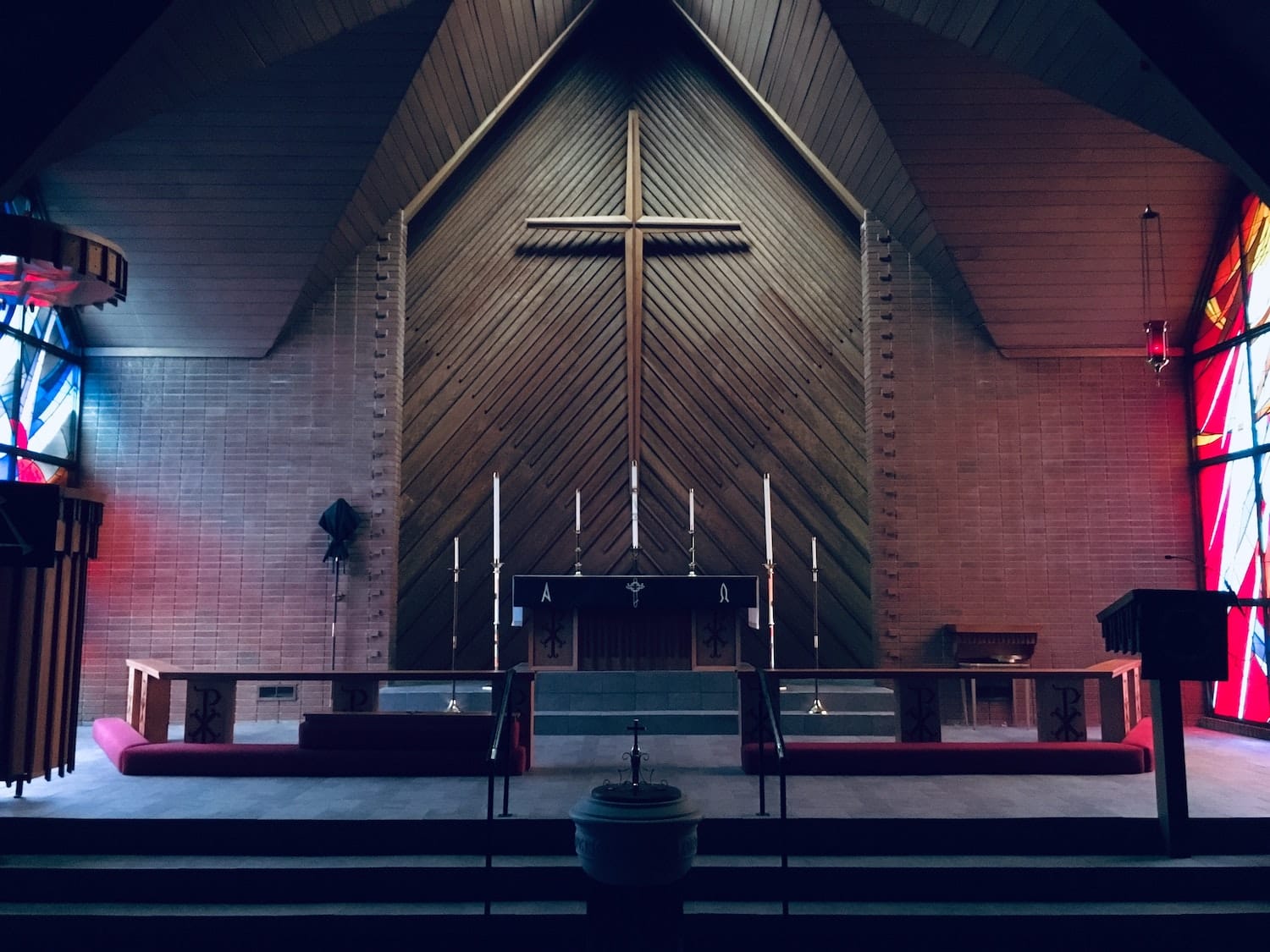The beginning of all good spiritual habits is asking God to use the promises of His Word each day to tell yourself the truth:
I recently listened to a podcast episode on the topic of decluttering, focusing on the reasons why we all need less stuff, and why it’s often so hard to make that happen. (Yes, please follow me for more tips on exciting ways to spend your free time!)
The episode covered psychology and strategy, tips and tricks, and questions to ask yourself. But I was struck by a key starting point that — though not explicitly stated by the host — ran through every facet of the discussion:
You must tell yourself the truth.
To declutter, or to make any sort of life change, we can only move forward if we are honest with ourselves — not only about who we are right now, but about who we will or won’t become.
Some examples from the episode:
No, I won’t actually ever become the person who makes these random antique table legs into lamps.
No, my high school kids aren’t going to start bonding over this second-hand foosball table we’ve been using as an open-faced filing cabinet since they were in fifth grade.
No, I won’t actually find the time in my hectic life to make a farmhouse table out of this barn wood I’ve had in my garage since 2008.
No, I won’t magically transform from “the person whose idea of a perfect night means eating ice cream alone and binge-watching The Bachelor in my pajamas” into ”the person who throws lavish, charming cocktail parties on the regular.” I can let at least a few of my five sets of fine china and shrimp forks go.
Decluttering isn’t a big hangup for me; I love the silence of free space. But I have many other dark places where it’s hard to face the light of reality. And I must learn that if I can’t do that, I’ll never grow.
The honest truth about spiritual best practices — and all best practices — is that they must start with telling ourselves the truth.
The Whole Truth, and Nothing but the Truth
As Pastor Mike often says, “we are not who we are, we are who we are becoming.” My spiritual and emotional life is often packed with useless clutter that mirrors the examples in the podcast. I sort through the piles of my sin, operating on some vague notion that I’ll magically morph into someone different in the future — someone who knows how to make sense of this mess. I tell myself I’ll become someone new once my circumstances change, or certain people move on from my life, or I can “just get through this season.”
But I need to tell myself the truth: I will become someone new only if I am currently cooperating with God on a path — however slowly — to allow a new person to emerge. If I’m making only unwise decisions now in a certain area, I am building an unwise person that’s on the road to a date with death, brick-by-bad-choice brick (Proverbs 14:12, Romans 8:5, I John 1:8).
On the other hand, sometimes the truth is far better than the story I’m telling myself. I have a vicious, condemning inner critic that, for far too long, I convinced myself was the voice of God. But I know that there is “no condemnation for those who are in Christ” (Romans 8:1), so that voice can’t be Him. I have a tendency to let the news fill me with fear and fatalism for our world, but in reality I know that “many are the plans in the mind of a man, but it is the purpose of the Lord that will stand” (Proverbs 19:21).
Did you notice the key to being honest with yourself as a Christian? It’s letting scripture be your guide to reality. Jesus Himself said it best: “The truth will set you free” (John 8:32).
How to Start Telling Yourself the Truth
The beginning of all good spiritual habits is asking God to use the promises of His Word each day to tell yourself the truth:
Ask Him to help you be honest about yourself.
I am at heart, a human sinner, and I will fall short of the only perfection — God’s glory — every single day. All of the trying in the world will not improve myself out of this condition. I need His grace (Romans 3:23, I John 1:8).
But I am also loved beyond my imagination. I didn’t need to change a thing for Jesus to devote Himself to me with extravagance. While I was still doing things that told Him I didn’t want Him, Christ gave his life for me. He loves me in this extravagance every day, providing blessings and personal care far greater than I deserve. I have His grace (2 Corinthians 12:9, John 1:16, 2 Timothy 1:9).
Ask Him to help you be honest about your circumstances.
In this world I “will have trouble” (John 16:33). I can expect hardship; it shouldn’t be a surprise to me when things go wrong. Creation has been broken by sin, and as a result, things here decay and distort and die.
Likewise, the world isn’t as bad as the 24-hour news cycle is telling me it is (in order to keep me fearful and angry so I’ll stay tuned in). I can pause to look around my own life and see that the headlines I’m hearing are twisting the reality of how people actually act and think, and the truth I can actually see and touch. I can run away from lies that are designed to make me live in anxiety: “Do not call conspiracy all that this people calls conspiracy, and do not fear what they fear, nor be in dread” (Isaiah 8:12).
In either case, Christ has “overcome the world.” I’m not in charge. I don’t have to worry, and I don’t have to fix anything. I’m free to enjoy His blessings and trust in His providence (Romans 8:31-35).
Ask Him to help you be honest about who He is.
God is a vast, infinitely huge God. He spun the heavens into orbits, and holds the seas in their place, and gives the stars their orders (Job 38). His very words can create life (Romans 4:17).
But God is also infinitely small enough to want to know me personally. And that is how I should get to know Him — not by checking off to-do list items of devotionals and Bible studies and prayer plans — but by sitting down to spend time with the person who is Jesus, talking and listening and laughing and crying and learning. I can pull up a chair to meet Him, and expect Him to be the brother and friend He says He is (John 5:15, Hebrews 2:11, Mark 3:34-35).
In the end, all spiritual growth and best practices begin here, with knowing Him. That is because all honesty is found in Him. Christ is the Life and the Way, and He is the Truth (John 14:6). No one comes to the power that God has to change us without encountering the personal Jesus: on the day we first meet Him, and every day beyond.





